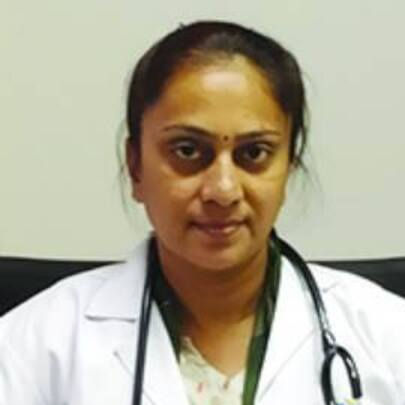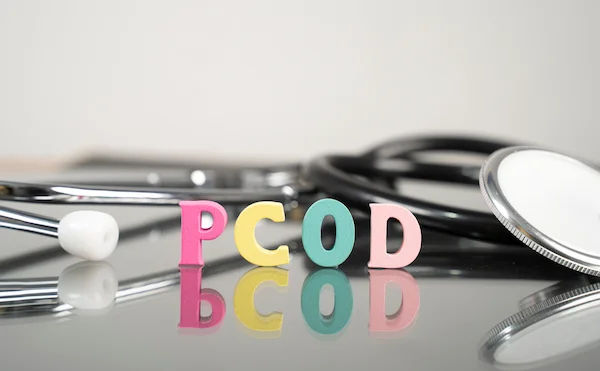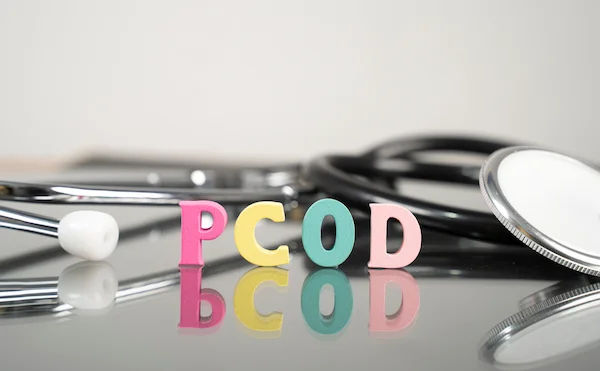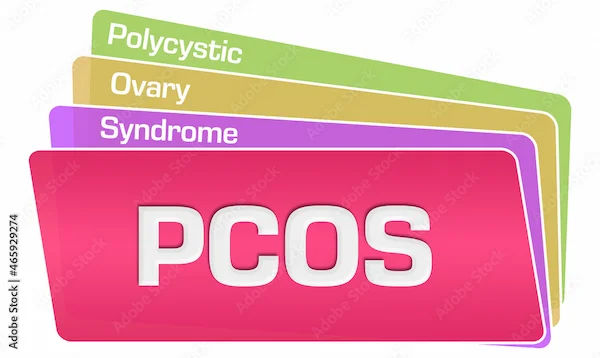PCOS and PCOD: Symptoms and Differences
Know about PCOS & PCOD , causes, symptoms, key differences between them, how it affects health and how to manage them and more.


Introduction
Polycystic Ovary Syndrome (PCOS) and Polycystic Ovarian Disease (PCOD) are common hormonal disorders affecting women, especially during their reproductive years. While they share similarities, they are not the same. Understanding the differences, symptoms, and management strategies can help women take better control of their health.
Consult a top gynaecology specialist for the best advice
What Are PCOS and PCOD?
PCOS and PCOD are:
PCOD (Polycystic Ovarian Disease)
PCOD is a condition where the ovaries produce immature or partially mature eggs, which can turn into cysts. This leads to hormonal imbalances, irregular periods, and other symptoms. PCOD is more common and often manageable with lifestyle changes.
PCOS (Polycystic Ovary Syndrome)
PCOS is a more severe metabolic disorder where the ovaries produce excess androgens (male hormones), leading to multiple cysts, insulin resistance, and long-term health risks like diabetes and heart disease. PCOS requires medical intervention and lifestyle modifications.
Key Differences Between PCOS and PCOD
Common Symptoms of PCOS and PCOD
Many symptoms overlap, but PCOS tends to be more severe:
1. Irregular or Missed Periods – Due to hormonal imbalances.
2. Excess Hair Growth (Hirsutism) – On the face, chest, or back due to high androgens.
3. Acne and Oily Skin – Caused by hormonal fluctuations.
4. Weight Gain – Especially around the abdomen (common in PCOS).
5. Hair Thinning or Male-Pattern Baldness – Due to excess androgens.
6. Darkening of Skin – Especially in neck creases, underarms (Acanthosis Nigricans).
7. Difficulty Getting Pregnant – Due to irregular ovulation.
8. Mood Swings & Fatigue – Linked to insulin resistance and hormonal changes.
What Causes PCOS and PCOD?
The exact cause is unknown, but factors include:
Insulin Resistance – High insulin levels increase androgen production.
Hormonal Imbalance – Excess androgens disrupt ovulation.
Genetics – Family history plays a role.
Inflammation – Low-grade inflammation is linked to PCOS.
Lifestyle Factors – Poor diet, lack of exercise, and stress worsen symptoms.
How Does PCOS/PCOD Affect Health?
If left unmanaged, these conditions can lead to:
Type 2 Diabetes (due to insulin resistance)
Heart Disease (high cholesterol, blood pressure)
Endometrial Cancer (from irregular periods)
Infertility (due to lack of ovulation)
Sleep Apnea & Depression
Managing PCOS and PCOD
While there’s no cure, symptoms can be managed effectively:
1. Dietary Changes
Eat low-glycemic foods (whole grains, lentils, vegetables).
Include lean proteins (chicken, fish, tofu).
Avoid sugary, processed foods.
Add anti-inflammatory foods (turmeric, nuts, berries).
2. Regular Exercise
Helps with weight loss, insulin sensitivity, and hormone balance.
Try yoga, walking, or strength training.
3. Stress Management
Practice meditation, deep breathing, or mindfulness.
Get 7-8 hours of sleep daily.
4. Medical Treatments
Birth control pills (regulate periods).
Metformin (improves insulin resistance).
Fertility treatments (if trying to conceive).
5. Natural Remedies
Spearmint tea (reduces excess hair growth).
Inositol supplements (improves insulin sensitivity).
When to See a Doctor?
Consult a doctor if you experience:
Irregular or absent periods
Unexplained weight gain
Severe acne or excess hair growth
Difficulty conceiving
Early diagnosis and treatment can prevent complications.
Final Thoughts
PCOS and PCOD can be challenging, but with the right lifestyle changes and medical support, symptoms can be managed effectively. If you’re experiencing any signs, don’t ignore them but taking early action makes a big difference.
Consult a top gynaecology specialist for the best advice
Consult a top gynaecology specialist for the best advice

Dr. Pavithra Ramakrishnan
Obstetrician and Gynaecologist
10 Years • MBBS, MS (OG), Diploma in Aesthetic (Cosmetic) Gynaecology
Chennai
Apollo Speciality Hospitals OMR, Chennai
(50+ Patients)

Dr. Rajsri J Shankar
Obstetrician and Gynaecologist
23 Years • MBBS, MRCOG
Chennai
Apollo Speciality Hospitals OMR, Chennai
(50+ Patients)

Dr. Vandana Sinha
Obstetrician and Gynaecologist
14 Years • MBBS, MS(Obs & Gyn), Fellow in Gynec-Onco. & Gynec Endoscopy
Ahmedabad
Apollo Hospitals Gandhinagar, Ahmedabad
(200+ Patients)

Dr. Kavya A
Obstetrician and Gynaecologist
11 Years • MBBS, DNB - obstetrics and gynaecology
Bengaluru
Apollo Clinic, JP nagar, Bengaluru

Dr. Jyothi Rajesh
Obstetrician and Gynaecologist
22 Years • DGO, MBBS (DNB)
Bengaluru
Apollo Clinic, Koramangala, Bengaluru
Consult a top gynaecology specialist for the best advice

Dr. Pavithra Ramakrishnan
Obstetrician and Gynaecologist
10 Years • MBBS, MS (OG), Diploma in Aesthetic (Cosmetic) Gynaecology
Chennai
Apollo Speciality Hospitals OMR, Chennai
(50+ Patients)

Dr. Rajsri J Shankar
Obstetrician and Gynaecologist
23 Years • MBBS, MRCOG
Chennai
Apollo Speciality Hospitals OMR, Chennai
(50+ Patients)

Dr. Vandana Sinha
Obstetrician and Gynaecologist
14 Years • MBBS, MS(Obs & Gyn), Fellow in Gynec-Onco. & Gynec Endoscopy
Ahmedabad
Apollo Hospitals Gandhinagar, Ahmedabad
(200+ Patients)

Dr. Kavya A
Obstetrician and Gynaecologist
11 Years • MBBS, DNB - obstetrics and gynaecology
Bengaluru
Apollo Clinic, JP nagar, Bengaluru

Dr. Jyothi Rajesh
Obstetrician and Gynaecologist
22 Years • DGO, MBBS (DNB)
Bengaluru
Apollo Clinic, Koramangala, Bengaluru
.webp)


.webp)
